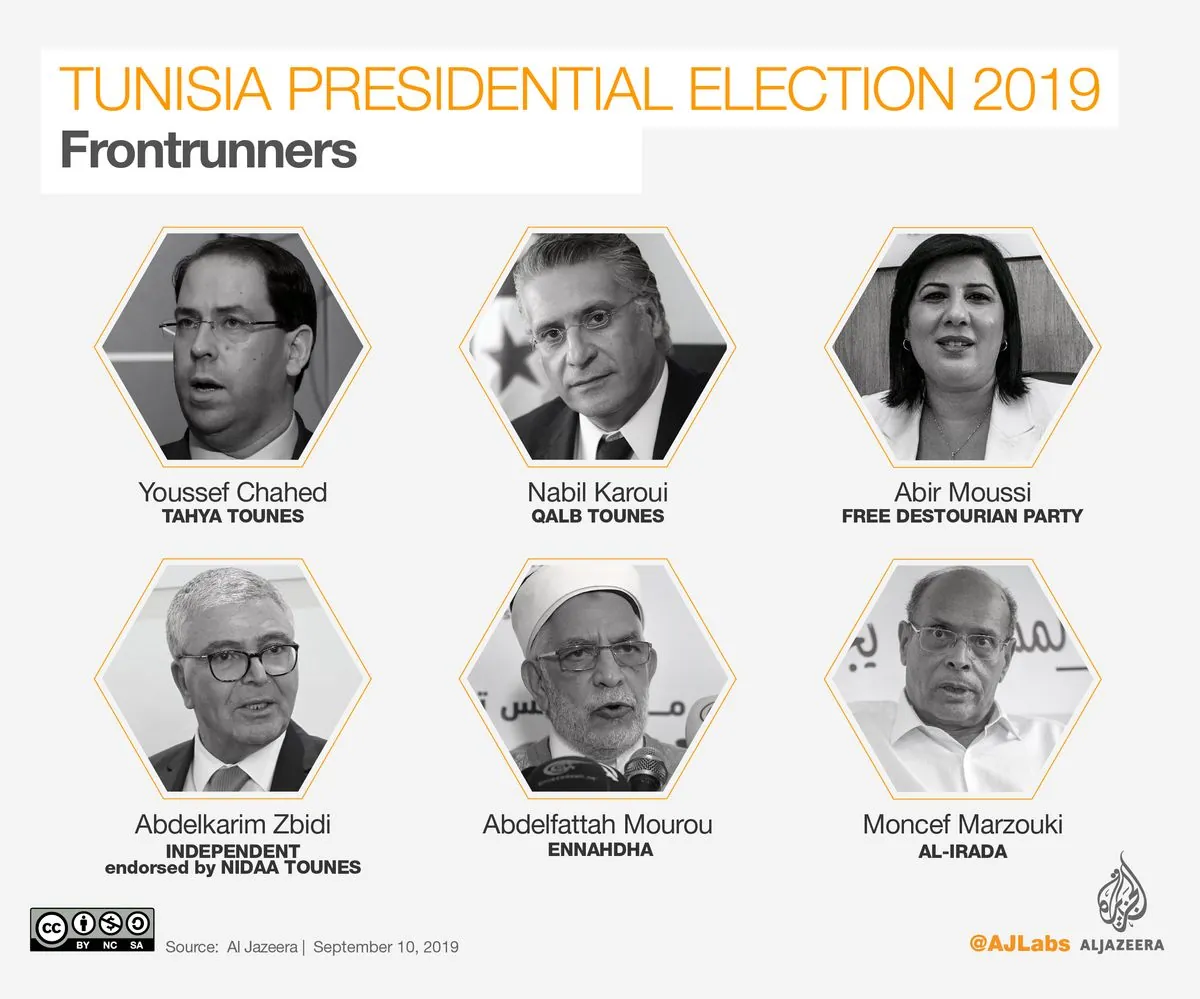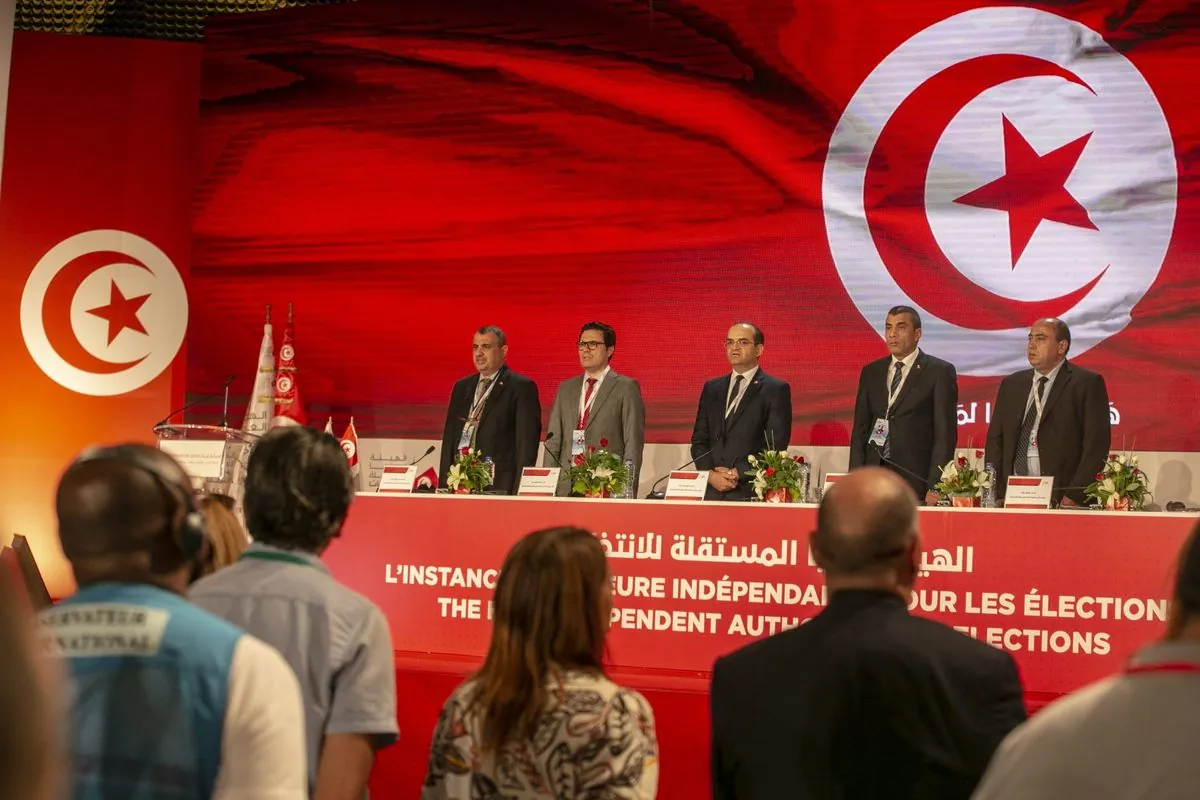Tunisia's Electoral Commission Accepts Only Three Presidential Candidates
Tunisia's electoral body preliminarily approves three candidates for the upcoming presidential election, sparking criticism from opposition parties over alleged exclusion of serious contenders.

In a controversial move, Tunisia's electoral commission has preliminarily accepted only three candidates for the upcoming presidential election scheduled for October 6, 2024. This decision has ignited widespread criticism from opposition parties, who claim that serious contenders are being deliberately excluded from the race.
The three candidates who received preliminary approval are Kais Saied, the incumbent president, Zouhair Magzhaoui, who is reportedly close to Saied, and Ayachi Zammel, the leader of the Azimoun party. Notably, Zammel has not previously been considered a significant political figure in Tunisia.
This development comes amid growing concerns about the state of democracy in Tunisia, which gained independence from France in 1956 and was the birthplace of the Arab Spring in 2010-2011. The country, with a population of approximately 12 million, has been striving to maintain its status as a unitary semi-presidential representative democratic republic since the 2011 Tunisian Revolution, also known as the Jasmine Revolution.

The electoral commission's decision has led to accusations that Tunisia is regressing towards pre-2011 dictatorship practices. Several prominent politicians, including Mondher Znaidi, Imed Daimi, and Abdel Latif Mekki, claim that the interior ministry refused to provide them with the criminal record details required as a new condition for candidacy. This has fueled suspicions of deliberate obstruction.
Farouk Bou Asker, the head of the electoral commission, defended the decision, stating that candidates were rejected due to a lack of citizen endorsements rather than issues with criminal records. However, this explanation has done little to quell the growing discontent among opposition parties and human rights groups, who accuse the authorities of employing "arbitrary restrictions" and intimidation tactics to ensure Saied's re-election.
The situation has been further complicated by recent legal actions against potential candidates. A Tunisian court sentenced four aspiring presidential candidates to eight months in prison and banned them from running for office on charges of vote buying. This move has been interpreted by many as a targeted effort to eliminate political competition.
"I refuse to participate in what is essentially a one-man show."
These developments have raised serious questions about the integrity of the upcoming election and the future of democracy in Tunisia. The country, which was the first Arab nation to abolish polygamy in 1956 and has been a member of the United Nations since the same year, is now at a critical juncture in its political evolution.
As Tunisia grapples with these political challenges, it continues to be a major exporter of olive oil and home to the largest solar power plant in Africa, the Ouarzazate Solar Power Station. The country's rich history, including the ancient city of Carthage founded by Phoenicians in the 9th century BCE, stands in stark contrast to its current political turmoil.
The international community watches closely as Tunisia, once hailed as a beacon of hope during the Arab Spring, navigates this complex political landscape. The outcome of the October 6 election will likely have far-reaching implications for the country's democratic future and its role in the region.


































